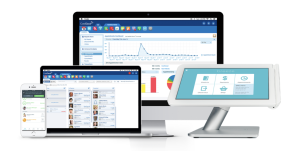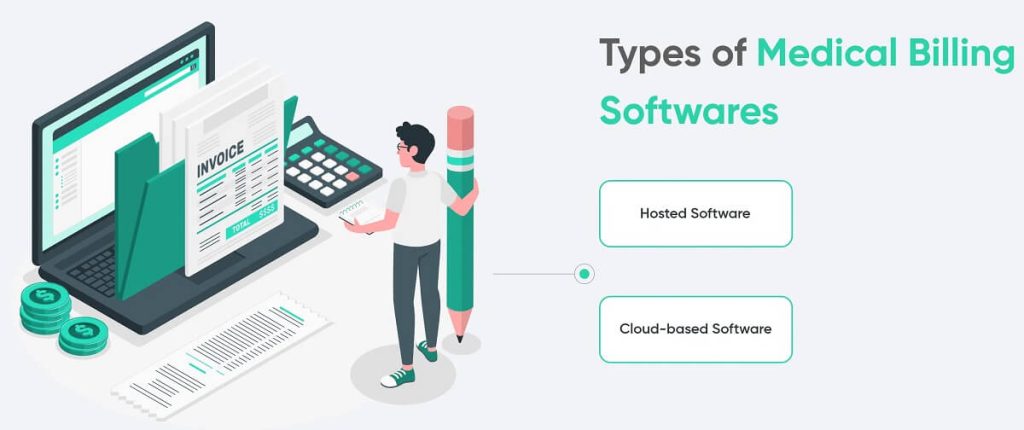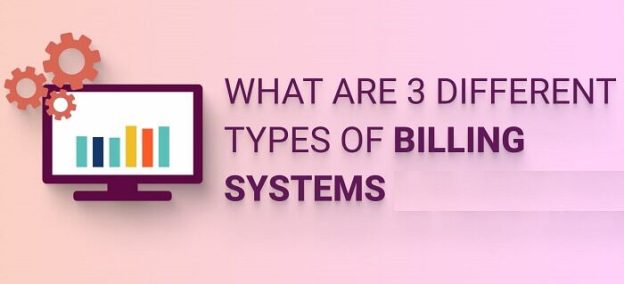In the world of healthcare, efficient and accurate medical billing systems play a vital role in the financial management of medical practices. These systems are designed to streamline the process of generating and submitting medical bills, reducing errors and improving revenue cycles. By categorizing medical billing systems into various types, healthcare providers are able to choose the one that best suits their specific needs and requirements. This article provides an overview of the different types of medical billing systems, shedding light on their features, benefits, and considerations.
Types of Medical Billing Systems

medical billing systems play a vital role in the healthcare industry, helping to efficiently manage and process billing and insurance claims. There are several types of medical billing systems available, each with its own advantages and features. Understanding the different types can help medical practices choose the right system that suits their needs and improves their billing processes.
Paper-Based Systems

Paper-based medical billing systems are traditional and rely on physical documents for recording and processing billing information. This includes patient demographic information, insurance details, and treatment codes. The paper-based system involves manual data entry and filing, which can be time-consuming and prone to errors. Additionally, accessing and retrieving patient data can be challenging, as it involves searching through physical files. Despite the drawbacks, some smaller medical practices still use paper-based systems due to their simplicity and cost-effectiveness.
Electronic Medical Billing Systems

Electronic medical billing systems have replaced paper-based systems in many healthcare facilities. These systems use electronic health records (EHRs) to store and manage patient information, including billing and insurance data. Electronic medical billing systems automate various billing processes, such as claims submission, coding, and remittance advice. This reduces the need for manual data entry and streamlines the billing workflow. Electronic systems also offer advanced features like real-time eligibility verification and claims tracking, improving accuracy and efficiency in billing.
Cloud-Based Medical Billing Systems
Cloud-based medical billing systems are hosted on remote servers and accessed through an internet connection. This eliminates the need for on-site servers and reduces the burden of software installation and maintenance. Cloud-based systems offer scalability and flexibility, allowing medical practices to easily expand or downsize their billing operations. They also provide secure data storage and backup, ensuring the safety and accessibility of patient information. With cloud-based systems, healthcare providers can access billing data from anywhere, facilitating remote work and improving collaboration among staff members.
Client-Server Medical Billing Systems

This image is property of sybridmd.com.
Client-server medical billing systems involve a central server that stores and manages the billing software and data. Multiple clients, such as desktop computers or laptops, connect to this server to access and interact with the billing system. Client-server systems are popular among larger healthcare organizations that require robust data management and processing capabilities. These systems offer enhanced security measures, as sensitive patient data is stored on the server rather than individual client devices. They also provide efficient data sharing and centralized control for easier administration.
Internet-Based Medical Billing Systems
Internet-based medical billing systems operate similarly to client-server systems but rely on internet connectivity for remote access. This makes it easier for healthcare providers to access the billing system from different locations without the need for a virtual private network (VPN) or complex network setup. Internet-based systems offer convenient access to billing data and enable seamless collaboration among multiple users and locations. However, they require a stable and secure internet connection to ensure uninterrupted access to patient information.
Practice Management System (PMS)
A practice management system (PMS) is a comprehensive software solution that combines medical billing, scheduling, and administrative tasks in one integrated platform. PMS systems provide a unified approach to managing various aspects of a medical practice, including appointment scheduling, patient registration, billing, and reporting. They streamline workflows, improve efficiency, and reduce errors by automating routine tasks. PMS systems are suitable for both small practices and larger healthcare organizations seeking a comprehensive solution to manage their administrative and financial processes.
Integrated Medical Billing Systems
Integrated medical billing systems are designed to seamlessly integrate with other healthcare software and systems, such as electronic health records (EHRs) and practice management systems. These systems eliminate the need for manual data entry and duplicate data handling, ensuring accurate and up-to-date patient information across different systems. Integration allows for a streamlined flow of data between various departments and reduces the risk of errors and inconsistencies in billing. With integrated billing systems, healthcare providers can enhance interoperability and streamline their operations.
Stand-Alone Medical Billing Systems
Stand-alone medical billing systems are designed solely for billing purposes and offer basic functionalities related to billing and claims processing. These systems may lack additional features found in integrated systems but can still effectively handle billing tasks. Stand-alone systems are commonly used by small medical practices or specialty clinics that require a simplified billing solution. They are often cost-effective and easy to implement without the need for extensive integration or training.
Online Medical Billing Services
Online medical billing services are outsourced solutions where a third-party company handles the entire medical billing process on behalf of a healthcare provider. These services typically operate via a dedicated web portal where healthcare providers can submit patient data, and the billing company takes care of claim submissions, payment processing, and follow-ups with insurance companies. Online medical billing services eliminate the need for in-house billing staff and infrastructure, offering a streamlined and cost-effective alternative for medical practices looking to outsource their billing processes.
Outsourced Medical Billing Services
Outsourced medical billing services are similar to online medical billing services but can extend beyond the online platform. These services involve partnering with a specialized medical billing company that manages the billing process remotely. The billing company handles tasks such as claim submissions, coding, payment processing, and follow-ups. Outsourced medical billing services provide expertise and industry knowledge, ensuring accurate and timely billing while reducing administrative burdens for healthcare providers. Medical practices can focus on patient care while entrusting their billing operations to professionals.
